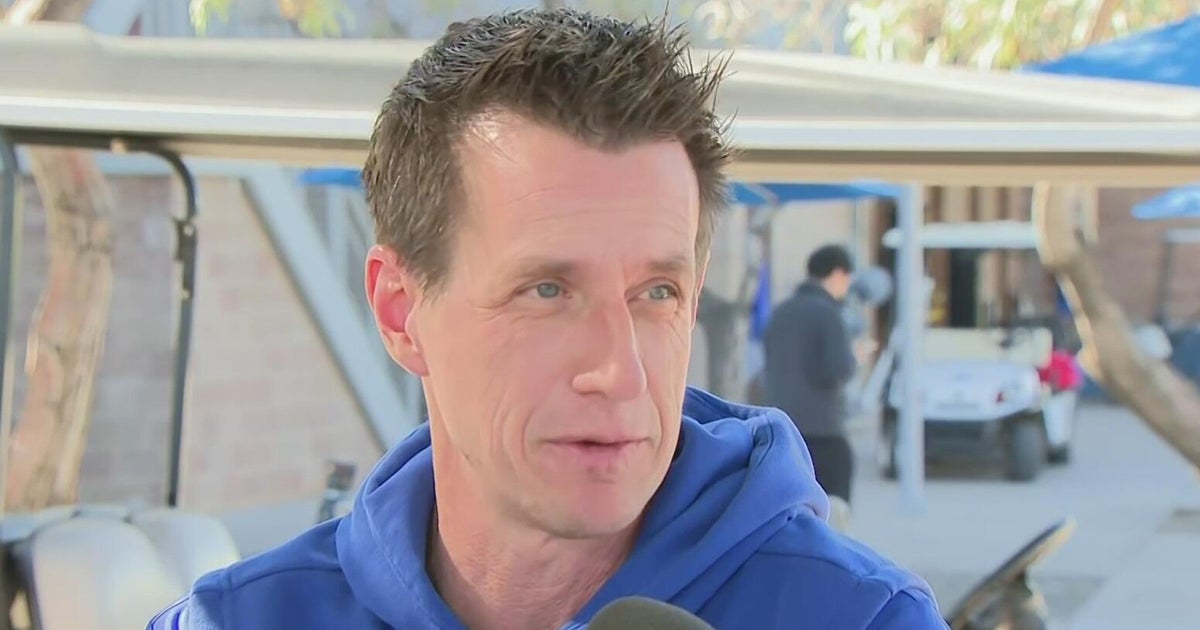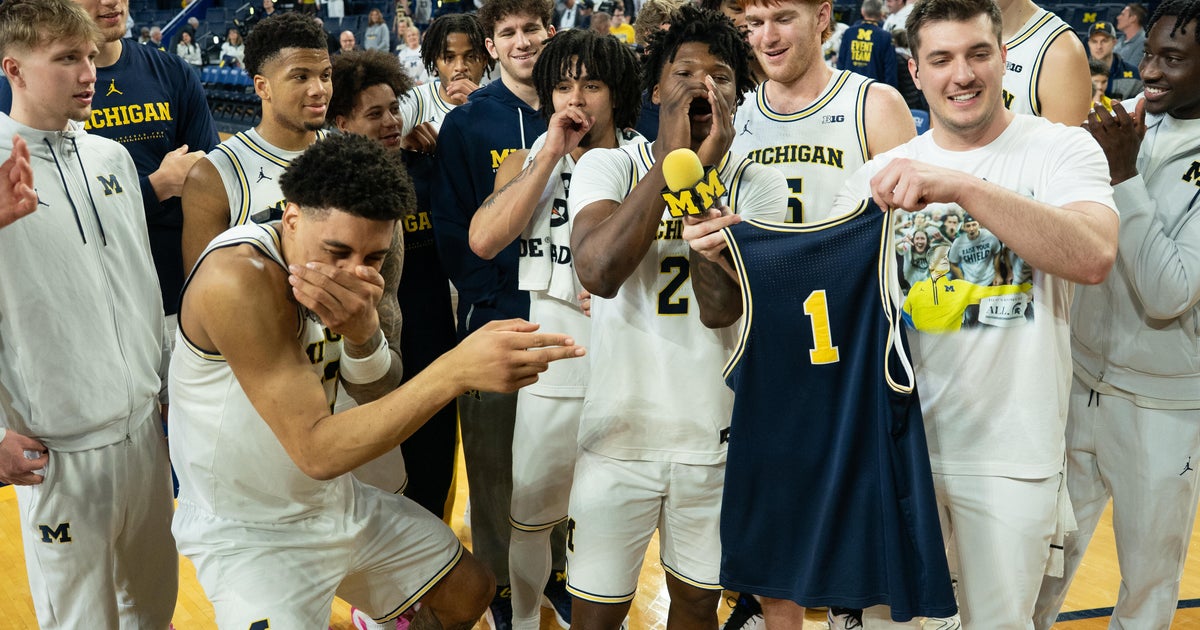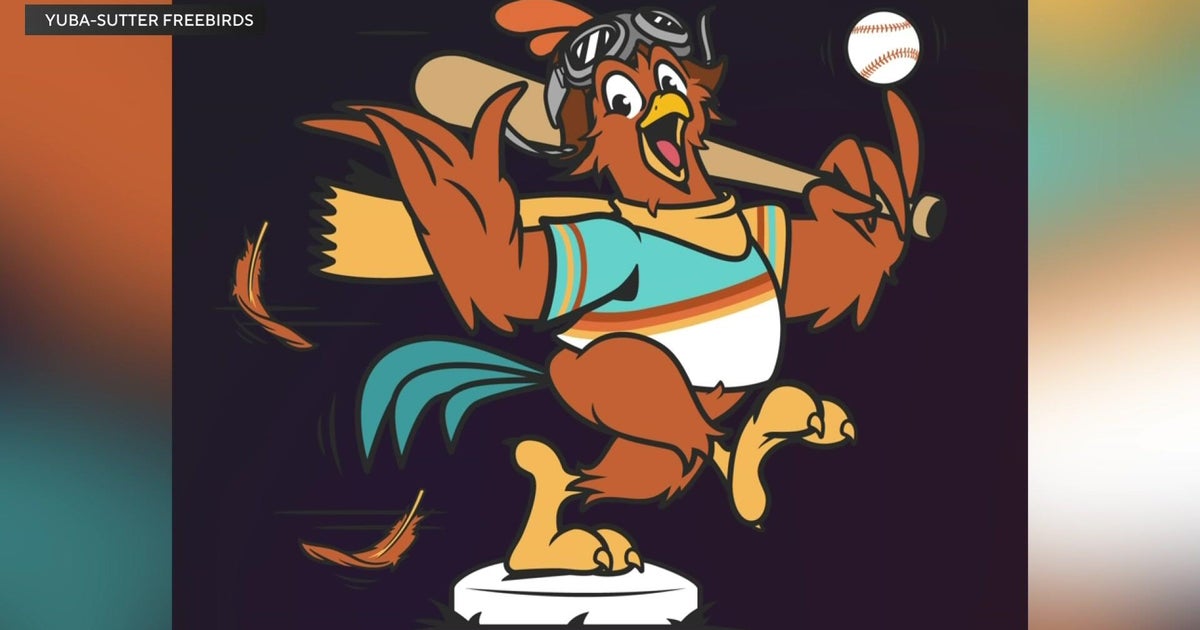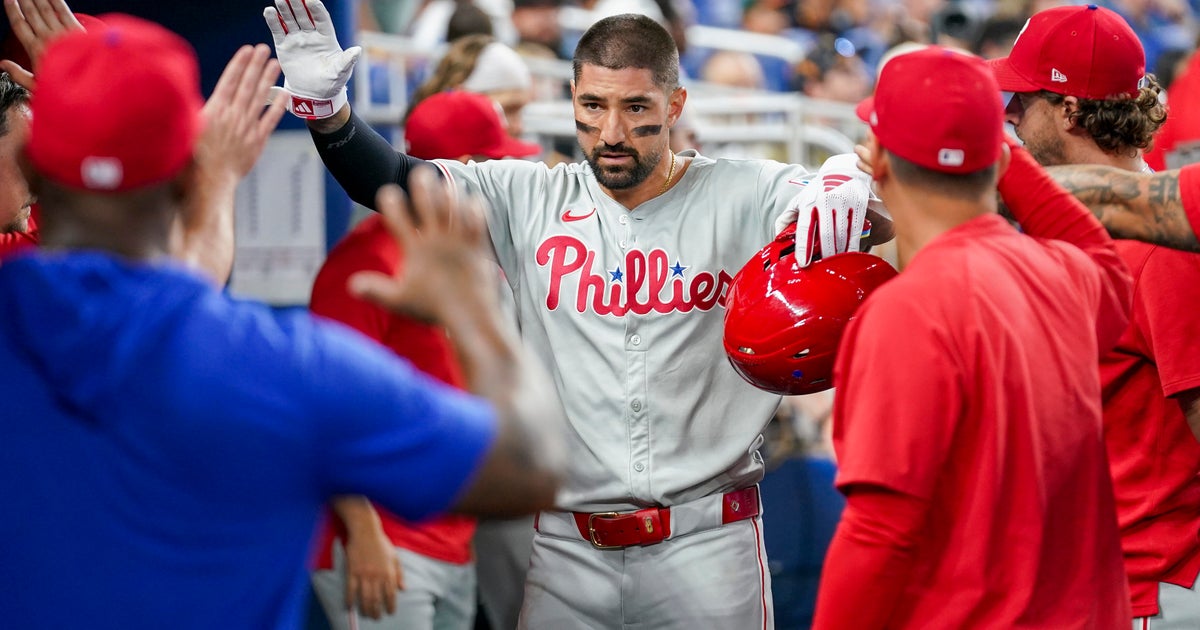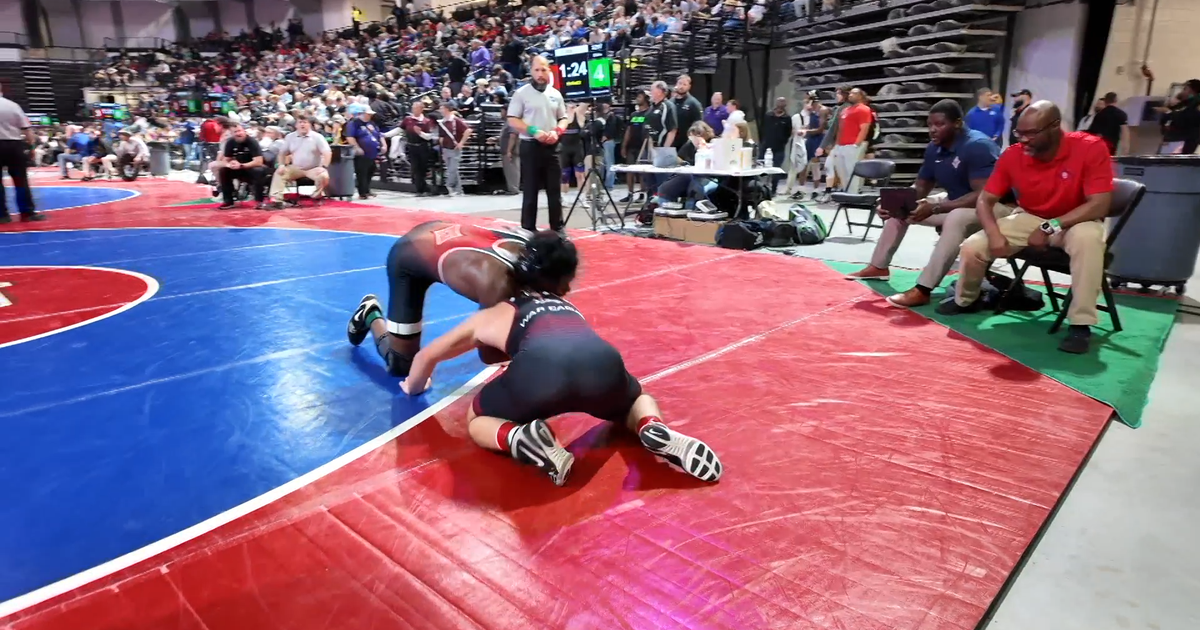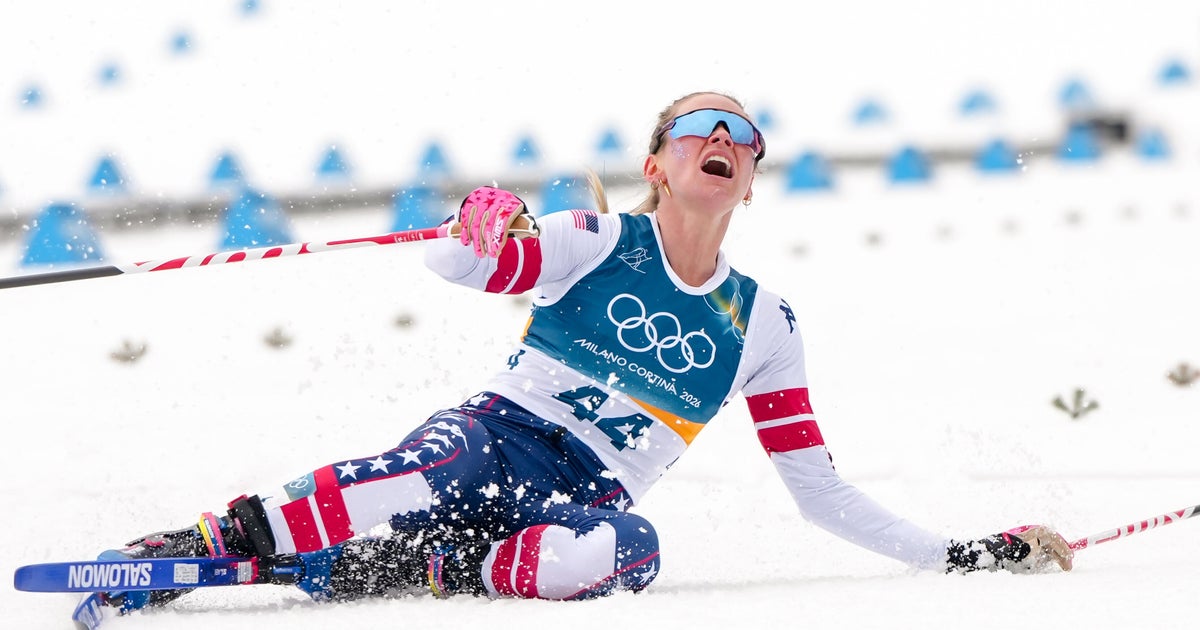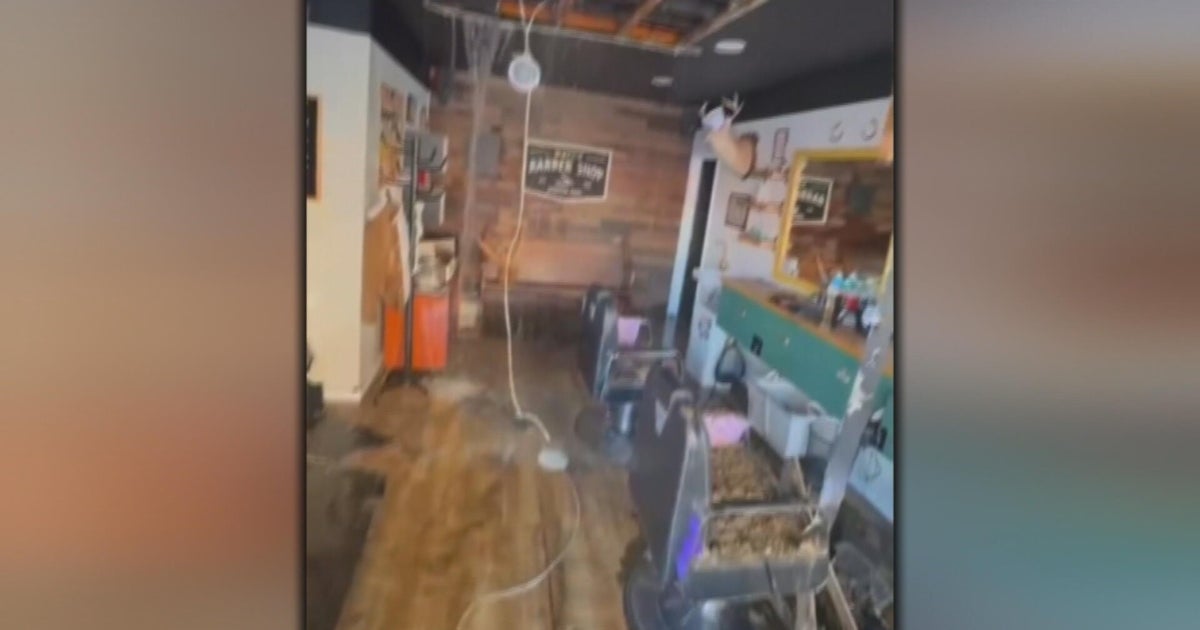Durkin: Know Your Opponent - Atlanta Falcons
By Dan Durkin-
(CBS) It's not unusual for teams that lose the NFC Championship game to stumble the following season. It is unusual for them to fall completely flat on their face, as the Atlanta Falcons did in 2013. In one calendar year, they went from hosting the NFC Championship game to 4-12.
Injuries played a large role in the Falcons' first losing season since general manager Thomas Dimitroff and coach Mike Smith arrived in 2008, but those weren't the only reason for their collapse.
On both sides of the ball, the Falcons lacked talent in the trenches.
Defensively, they were a doormat for opponents' run games and applied minimal pressure on opposing quarterbacks, ranking 31st in rushing defense and 29th in sacks. Offensively, they were both unable to protect quarterback Matt Ryan (44 sacks) and were dead last in rushing.
Consequently, the Falcons made a concerted effort this offseason to bolster both sides of the line.
In free agency, they re-signed defensive end Jonathan Babineaux and brought in defensive end Tyson Jackson (Chiefs) and defensive tackle Paul Soliai (Dolphins). In the draft, they spent a first-round pick on offensive tackle Jake Matthews (Texas A&M) and a second-round pick on defensive tackle Ra'shede Hageman (Minnesota).
Five games into the 2014 season and preparing to host the Bears on Sunday, the Falcons find themselves 2-3. Smith characterized has his team's performance as "consistently inconsistent," which is an accurate portrayal.
Defensively, they're exactly where they were last year, ranking 29th in sack production (4) and 31st in stopping the run (148 yards per game). Offensively, they're dealing with a new rash of injuries along the offensive line, losing three starters since the beginning of camp.
However, with the key cogs to their potent passing attack -- receivers Julio Jones and Roddy White -- back in action, the Falcons can move the ball through the air as well as any team in the league, but will their leaky defense provide enough backbone to prevent every week from devolving into a shootout?
Offensive coordinator Dirk Koetter runs a spread attack primarily out of three-wide receiver personnel groupings. Koetter runs a variety of common route combinations -- snag, smash, hi-lo -- but his base concept is four verticals.
Koetter's preference is to attack the middle of the field in the intermediate range and not try to beat safeties over the top, but rather to make them guess wrong and open their hips early.
Within the four-vertical concept, he spreads the defense out horizontally and either attacks the safety with numbers (two-on-one in a split-safety look) or by spacing (against a single-high safety). Receivers are counted on to make sight adjustments within their routes, with perimeter receivers typically running sharp comebacks as inside receivers bend their routes.
Ryan doesn't have elite arm strength, but when properly protected and allowed to dig his cleats in the ground and throw from a proper framework with proper weight transfer, he can make every throw and force a defense to cover every passing zone on the field.
With gifted and physically imposing receivers on the perimeter, Koetter also uses play-action passes to freeze linebackers, with Jones and White running mirrored routes -- skinny posts, slants, digs and curls -- over the top.
As teams play more split-safety shells, the box lightens, making it inviting to run the ball against.
Eleven-year veteran Steven Jackson is the Falcons' lead back, but given the team's preference for running multiple personnel groupings, three other running backs are vying for carries -- Jacquizz Rodgers, Devonta Freeman and Antone Smith. Of the three, Smith is making the biggest case for more touches, averaging 16.3 yards per touch this season.
One component missing from the Falcons' attack this season is a tight end who can work over the middle of the field. Given the lack of production from Levine Toilolo, the Falcons are incorporating their slot receivers more. Harry Douglas is the top option out of the slot, but he's dealing with a foot injury, leaving ex-Bear Devin Hester as the next man up.
Koetter has found a package of plays to get the ball in Hester's hands, primarily on shallow crossers off of a rub and slants over the middle, as well as stop-and-go routes on the perimeter. Hester still makes his impact as a returner, but he's the third-most targeted receiver through five games and is second in yards after the catch.
Despite three season-ending injuries on the offensive line -- left tackle Sam Baker (torn patella), right tackle Lamar Holmes (foot) and center Joe Hawley (knee) -- the protection for Ryan has held up, yielding only six sacks on the season. Matthews and ex-Bear Gabe Carimi man the edges, and they may get guard Justin Blalock back from a back injury this weekend, which would be a boost.
Defensively, the Falcons still lack a pass rusher. For two seasons now, the thought has been that defensive coordinator Mike Nolan could mask their defciencies on the edge with pressure packages, but that's yet to come to fruition.
The Falcons have four sacks on the season, while opposing quarterbacks are averaging a passer rating of 95 and the second-most yards per pass attempt (8.2).
Nolan has a history of hybrid defenses operating out of 30-fronts, but with the Falcons, they're primarily a 40-front team. In obvious passing situations, they will play three-man lines and bring pressure with second- and third-level defenders on fire-zone blitzes, typically dropping defensive ends into coverage.
Losing Sean Weatherspoon (Achilles tear) during a training run this summer was a huge blow to an already suspect linebacking corps. The Falcons' second level has a tendency to bite hard on play action and leave the middle of the field wide open. They've surrendered 27 pass plays of 15 or more yards.
Left cornerback and 2013 first-round draft pick Desmond Trufant has been a bright spot. Trufant has quick feet and fluid hips to mirror receivers. Of the five passing touchdowns the Falcons have surrendered, right cornerback Robert Alford has been targeted on four of them.
While teams have gained chunks of yardage via the air against the Falcons, they're punching it in on the ground. Atlanta has allowed a league-high 10 rushing touchdowns. Teams are playing ball-control with their running game and limiting Atlanta's opportunities in the second half.
There are striking similariies between Atlanta and Chicago. Both had playoff aspirations heading into the season and sit at 2-3, in the midst of two-game losing streaks.
The Falcons play in an a weak division that plays little defense. However, like the Bears, the Falcons' offense is struggling in second half of games. Over the past two weeks, they've been outscored 27-0 in the fourth quarter.
This has become a must-win game for both teams. With two teams desperate for a win that have leaky defenses and playmakers on the perimeter, this game has the look of a shootout and will once again come down to ball protection.
Dan Durkin covers the Bears for CBSChicago.com and is a frequent contributor to 670 The Score. Follow him on Twitter at @djdurkin.
